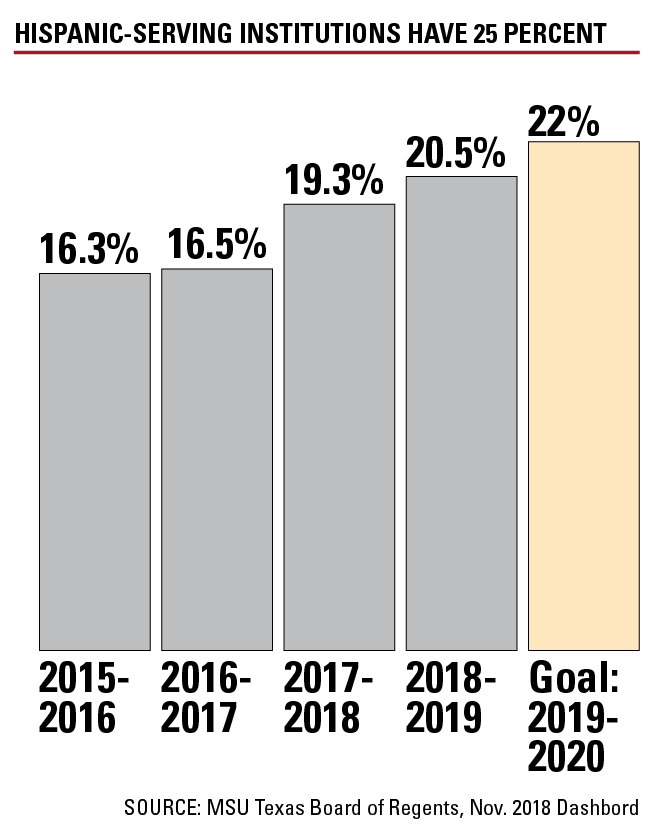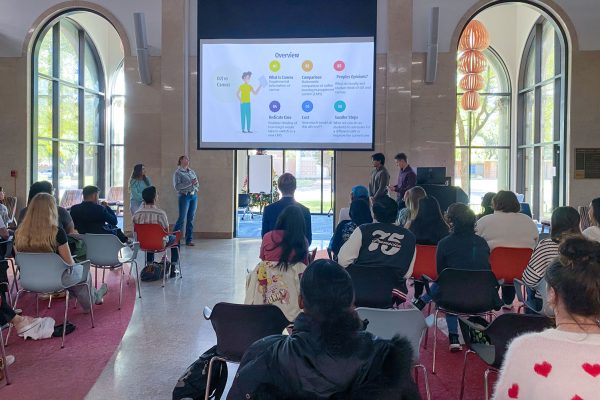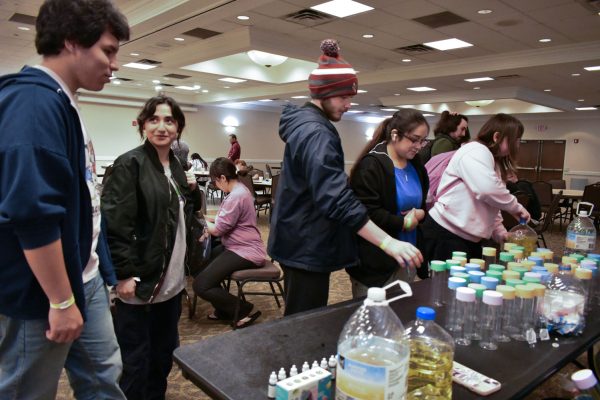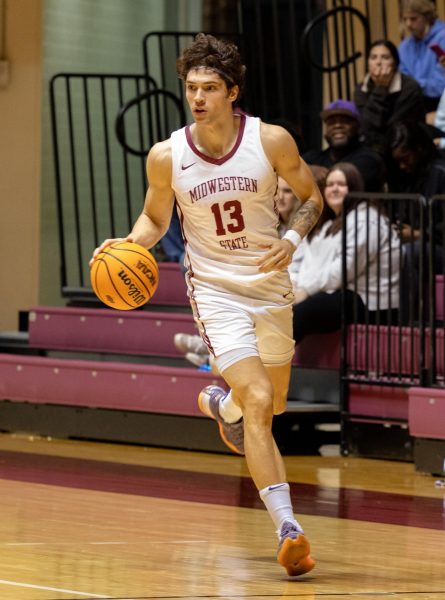MSU close to becoming a Hispanic-Serving Institution
Designation could bring almost $5 million in federal funding
So close, with 19.3 percent of the students identifying as Hispanic, the university is only 5.7 percent away from being federally designated as a Hispanic-Serving Institution.
Institutions that are HSI receive a federal grant of approximately $3,117 per student which could equate to more than $4,754,983 at the current enrollment. The grant is not to be used strictly for the Hispanic student population at an institution that is federally labeled as an HSI. The grant money can be used for the benefit of all students attending the institution.
Hugo Erazo, assistant director of admissions, said he has been assigned to recruit Hispanic minority students.
Erazo also mentioned that there needs to be more resources to serve Hispanic students.
Erazo said, “When the president [of the university] came on board, one of her ideas was to make MSU a Hispanic Serving Institution.”
“There’s misconceptions. There are some offices that will say that we are Hispanic serving, because we have Hispanic students,” said Erazo. “They are not aware that is not what being a Hispanic-Serving Institution is.”
Erazo said he would like to see more minority representation with the staff and faculty.
“There are a few Hispanics or Latinos working and African-Americans, too,” said Erazo. “We need to bring those here to start changing the culture inside of the university.”
Erazo said there is a cultural barrier between the Hispanic student population and the university.
“We bring Hispanics here that are low-socioeconomic, and it’s a clash. They don’t have anyone they can relate to. They see caucasians who are running the university and they feel they cannot talk to anyone.”
 Erazo said there is no strategy or focus on recruiting Hispanic students.
Erazo said there is no strategy or focus on recruiting Hispanic students.
“There’s really no strong focus in recruiting Hispanics,” said Erazo. “Myself, has requested material for recruitment in Spanish for the last three years and I haven’t received anything.”
Erazo said he would like MSU to establish an office that focuses on the success of Hispanics.
“At Texas A&M Commerce, there is an office for Hispanics. It is a program that has been successful. A program like that would be great here,” Erazo said.
Keith Lamb, vice president of student affairs, said the process for college-bound students begin before college.
“Cafe con Leche is a local organization that works with MSU and the Wichita Falls Independent School District,” Lamb said. “They actually begin working with middle school students, primarily Hispanic first-generation.”
As for Hispanic first-generation students, Lamb said he hopes MSU continues to encourage the Hispanic population in completing a higher education.
“Midwestern is trying to become an HSI and we’ve made significant gains in the last few years,” said Lamb. “We’ll continue down the path way and make sure that we do everything that we can to remove barriers to higher education.”
Lamb said that the first-generation office is a great resource to help students.
Lamb said, “We have a number of first generation programs and we do know that students in the Hispanic community are more likely to be first generation college students. If we expand it to first generation students we have a brand new office that started this spring called First to Go, which is an office that supports first generation college students.”
As for academic success Lamb mentioned the student support services.
Lisa S. Estrada-Hamby, director of student support services, said MSU offers the Trio program as a resource for students.
Estrada-Hamby said, “Although you have to qualify to be in this program, student support services focuses on student success.”
As for student involvement within the community Estrada-Hamby highly encourages all students to participate.
“I always tell all my students to involve themselves on and off campus in community service,” Estrada-Hamby said. “This provides an opportunity for students to speak about their culture and provide knowledge to others about their life. As a young person, involving yourself, you can learn about other cultures.”
Director of Student Leadership and Involvement Mario Ramirez said the purpose of the student involvement office is to get students involved.
“There are several organizations on campus and around the city that provide support for Hispanic students.”
Due to the need of Hispanic organizations that was not apart of Greek Life.
Ramirez said the student involvement offices creates support with Hispanic culture through sponsoring events.
“Through our office, we also help provide programming through Hispanic Heritage Month or any kind of awareness piece that helps involve the Hispanic community.”
As to getting involved on campus Ramirez said it does not matter how students get involved as long as they are doing something.
“When it comes to culturally based organizations it’s important,” Ramirez said. “If there is not enough organizations or a program that they want to do they can always reach out to us. We can help them start something new, support an idea, and guide them to the right people.”
Luz Garcia, nursing sophomore and president of the Organization of Hispanic Students, said that the purpose of OHS is to create awareness for the Hispanic culture and promote improvements among the Hispanic population.
“We have promoted a lot of events.” Garcia said “Last semester we worked with Zavala. We contributed during the Hispanic Heritage Month celebrations. We were helping out throughout the whole week.”
Zelma Delgado, social work junior, said she hopes for MSU to offer more resources for the Hispanic population, like scholarships.
“For me as a Hispanic transfer, there was only one opportunity for me to get a scholarship. Even then it does not cover everything,” Delgado said.
Delgado is a member of Kappa Delta Chi where she has been able to connect with other Hispanic students.
“Greek life is helping Hispanics connect. It helps us come out and have a community where we talk to each other about certain things. I wanted to be with somebody that I could talk to within Spanish, feel my culture, and just be able to relate on certain things.”
Emanuel Hernandez, nursing freshman, is the first in his family to pursue a higher education.
Hernandez said, “It’s stressful being a first generation student. Your parents expect it and you don’t want to fail or make anyone not proud.”
Hernandez is not involved on campus due to his responsibilities outside the classroom
“I don’t really have time to be involved on campus. I work close to full-time and take 15-credit-hours,” said Hernandez.
Jose Torres, bilingual education junior, said his transition from high school was difficult.
Torres said, “It was a little difficult to adjust especially since I didn’t know what to expect since no one from my family has gone to a four-year university.”
Torres sees representation for this Hispanic community through Hispanic Heritage Month events.
“They have the whole Hispanic Heritage Month celebration with events. They just started the Hispanic Heritage Month Gala, it’s the second one this year,” Torres said.
Torres found creating a relationship with his professor easy.
“I didn’t think about my professors relating to me. I saw them as my professors wanting me to succeed regardless,” Torres said.
Michael Gonzales, criminal justice junior, said the university does not focus much on the Hispanic culture.
“MSU really is trying their best, because they care about the culture. Even if it is not directly the Hispanic culture, they do care about culture.”







